We offer free shipping to the US on all orders $35 and up. For all other orders, we offer $5 flat rate shipping.
We ship using FedEx Express (2 business days from order shipment date) and FedEx Ground (3-5 business days from order shipment date).
| Order Subtotal | Shipping Charge | |
| Standard Shipping | Expedited Shipping | |
| $0 - $34.99 | $5 | $15 |
| $35 - $74.99 | Free | $10 |
| $75+ | Free | Free |
We are currently unable to ship to P.O. boxes. Orders to APO/FPO addresses and U.S. territories ship via USPS with 10-15 day shipping or faster.
-
Free shipping on all orders over $35 in the US!Shipping to the US
We offer free shipping to the US on all orders $35 and up. For all other orders, we offer $5 flat rate shipping.
We ship using FedEx Express (2 business days from order shipment date) and FedEx Ground (3-5 business days from order shipment date).
Order Subtotal Shipping Charge Standard Shipping Expedited Shipping $0 - $34.99 $5 $15 $35 - $74.99 Free $10 $75+ Free Free We are currently unable to ship to P.O. boxes. Orders to APO/FPO addresses and U.S. territories ship via USPS with 10-15 day shipping or faster.
- Ship To: | EN
-
Contact Us

Our customer service team in the US is ready to assist you.
Monday - Friday
7 AM – 4 PM PTSaturday
7 AM – 4 PM PT
- Login
- Join
- Your Bag 0
- Terms of Service
- Privacy Policy
- Copyright Policy
- Cookie Policy
- Do Not Sell or Share My Personal Information
- © 2024 Beautylish, Inc. All rights reserved.






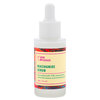
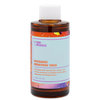
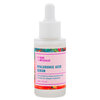
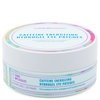
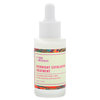
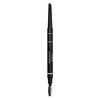
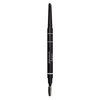
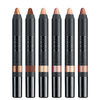
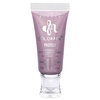
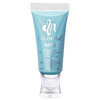
Apr 17, 2014
Tina C.
I recently visited my local LUSH Cosmetics (natural skincare products) and bought a cleanser that I have absolutely fallen in love with. The sales associates helped put together a regimen for my super oily skin, but I only purchased the cleanser since it was my first time. So I wanted to ask, what are your views? Do you prefer natural products or lab created skin care products? What are the pros and cons? Any product recommendations? I'd love to hear your thoughts. :)
Apr 17, 2014
Emily W.
"Natural" is a term used by sales people to part you from your money. It means absolutely nothing, has no regulations attached to it, and has no bearing on quality or safety. Lab synthesized chemicals are natural too-- they are made of elements that occur naturally on earth.
Everything (and I mean EVERYTHING) is made of chemicals. An apple has an ingredients list, if you were to break it down like they do other products.
People are afraid of things they don't understand, including chemistry. They see a long scientific name on a label and panic. "Natural" products use things they recognize, and thus people assume they are better or safer. This is not always the case.
Not all chemicals are bad, not all things in nature are good. Nightshade is natural and related to tomatoes; doesn't mean it is safe to toss in your salad.
Apr 17, 2014
Shelley W.
I'm 50/50 on it. Some natural products have broken me out while I find lab generated skincare to be more stable because everything is fine tuned and measured.
Apr 17, 2014
Nicole R.
Just be warned you still have to read labels at lush, I love them but they are not ALL natural.
Apr 17, 2014
Jamie D.
Emily W took the words right out of my mouth! Instead of wondering whether something is "natural" or not, wonder whether it has safe ingredients for your skin, and whether it works or not.
Apr 17, 2014
Kenzie L.
I personally love lush, especially their skincare; but I also understand that just because I love something doesn't mean it's for everyone. this is why I'm always so hesitant to suggest specific products because something that may be someone's holy grail product might be someone else's nightmare.
Apr 17, 2014
Kenzie L.
There's a big misconception that lush claims to be all natural which is not the case at all. they are however the freshest cosmetic company in the world and mire important than that is how they source their ingredients. they have the strictest buying policy in the world and many of your dollars spent there go to help make the world a better place.
Apr 18, 2014
Diana T.
As a chemist in training (getting my masters) I can say that a lot if synthetic ingredients should not be put on your face, skin or body - but since there are no scientific studies that support or reject the notion that any skin care products are "bad" for the skin there is no significant evidence to cause companies to choose "natural" vs purely synthetic ingredients - although most synthetic ingredients stem from a natural source - this causes confusion for the consumer because synthetic ingredients can be called "natural" as long as it meets a certain criteria but may or may not be any better or worse than non-naturally derived synthetics - in any case I personally prefer more "natural" ingredients as well as cruelty-free brands myself because in my personal experience with synthetic preservatives my skin is quite sensitive to them so I have to be careful of the things I put on my face - so that's my personal stance on the whole thing :T.
Apr 18, 2014
Caitlin M.
I agree with both Emily and Shelley. The only natural skincare item I've really ever used is Maracuja oil. I use coconut for a hair mask but otherwise I use lab created products mostly. Just because it's made in a lab with chemicals, which as Emily said, are in everything, doesn't mean it's bad or unsafe. Natural/handmade/fresh made, etc.products can react badly if not worse sometimes with skin than the "harmful chemicals" do. It truly does all boil down to chemistry. I usuall prefer lab made stuff because as Shelley said, the ingredients are measured and checked and they are tested. I would much rather put a carefully measured and tested product on my face versus trying to whip something up in my kitchen, slapping it on my face and hoping for the best. If you absolutely want or have to use home remedies I would do a ton of research and do a patch test. So many people think its fine to rub undiluted lemons on their skin when its actually way too acidic and can burn the skin. Not to say a store bought product can't do that too but usually the risk is much smaller since things like that are tested and measured correctly.
Apr 18, 2014
Diana T.
Omg so I have said this before n will say again you need to do your research before you start spewing out false information... The ph of lemons is about 2 the ph of AHA (or glycolic acid) is also 2 and the ph of BHA (or salicylic acid) is 3 while pH of skin is 4 and pH of most cleansers is around 9 while pH of water ranges from 4-7 depending on where you live - so the argument that a lemons pH is "too acidic" is just not true - I don't know anyone who has had their skin burned by rubbing a lemon on it because it's not as strong as something like HCl or some other strong acid - it's weakly acidic at best and has the same ph as any AHA exfoliator out there and plenty of people use AHA exfoliation which the most natural source of AHA comes from lemons! So really lemons are not bad for your skin - now if you are sensitive to lemons obviously don't put them on your skin - and with any AHA exfoliation you always need SPF to protect your newly exposed skin cells.
Apr 18, 2014
Emily W.
Diana, it isn't about the pH of the citric acid, its about the use of it undiluted on skin for lengths of time. Also, those acids you list that are used in peels/preparations are significantly diluted before being put on the skin, and generally are washed off after a short period of time.
Rubbing a raw lemon on your skin (particularly sensitive areas such as the face or armpits) and leaving it on as is often suggested WILL cause burns. Prolonged exposure to undiluted citric acid causes inflammation, and extreme photosensitivity, which will create a nasty burn.
Nobody "spewed out" any false information. Telling people to be cautious before they slather random shit from the kitchen pantry all over themselves is much needed on this app, where truly bad advice runs rampant.
Apr 18, 2014
Diana T.
The lemon does not cause the burn - when you leave it on your skin and go out into the sun - the UV light causes a chemical reaction with the citric acid to cause the burn - so again not the lemon it's the sun doing the burning - you can easily dilute the lemon with water and use it as an exfoliant and wash it off and you will be fine and of course always use SPF when going outside
Apr 19, 2014
Kenzie L.
Diana, I believe the point Emily is trying to make (and correct me if I'm wrong) is that you can split hairs and say that no its the sun, not the lemons qhich causes a reaction/burn and so on. but the point is that there's a lot of women who just straight up rub a slice of lemon on their skin and DONT wash it off or dilute it. the same goes for lavender, tea treeand virtually all other citrus fruits. cosmetic companies know how to formulate these ingredients to make them the proper ph for the skin. "slathering random shit from the kitchen pantry" will not give you the same results and if they do the side effects could be dangerous with prolonged use.
Apr 19, 2014
Emily W.
Yes Kenzie, that was my point. :) I'm sure that used properly a lemon would be fine. However, very rarely does anyone use it properly. Not to mention, it is difficult to pinpoint just how much to dilute it-- too much and it won't do anything, too little and you're in for a bad time. In my experience, home remedies create more problems than solutions.
I can't count how many times I have seen people on this app say to rub lemon on your dark spots or whatever you want lightened then go sit in the sun. I've seen countless other examples of dangerous or misinformed advice (rub raw honey and cinnamon on your face!) and myths tauted as fact (hanging your head upside down makes your hair grow!). Nine times out of ten, this bad advice is given because someone wants a "natural" way to achieve something.
Apr 22, 2014
Diana T.
Alright I get what you beauties are trying to say and I can agree with that - at home treatments are only effective when used correctly and you really need to know a few things about science and chemistry to really understand how certain raw ingredients combine or should be applied to the skin - and I do see a lot of bad advice on this app that drives me crazy as well - but I still prefer to buy more "natural" or organic skin care lines in the stores than mixing it up myself at home but like you beauties mentioned just because a company advertises it doesn't mean it's necessarily natural so it's hard to find that balance between natural that's good for skin and natural that's not good for skin.